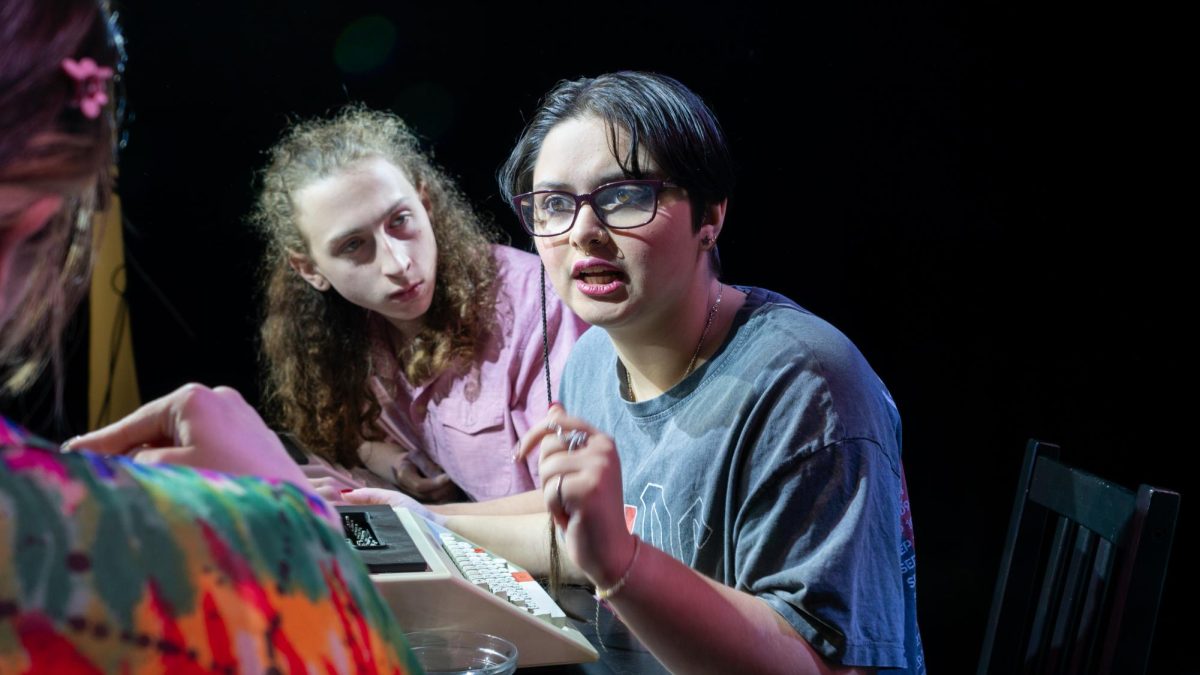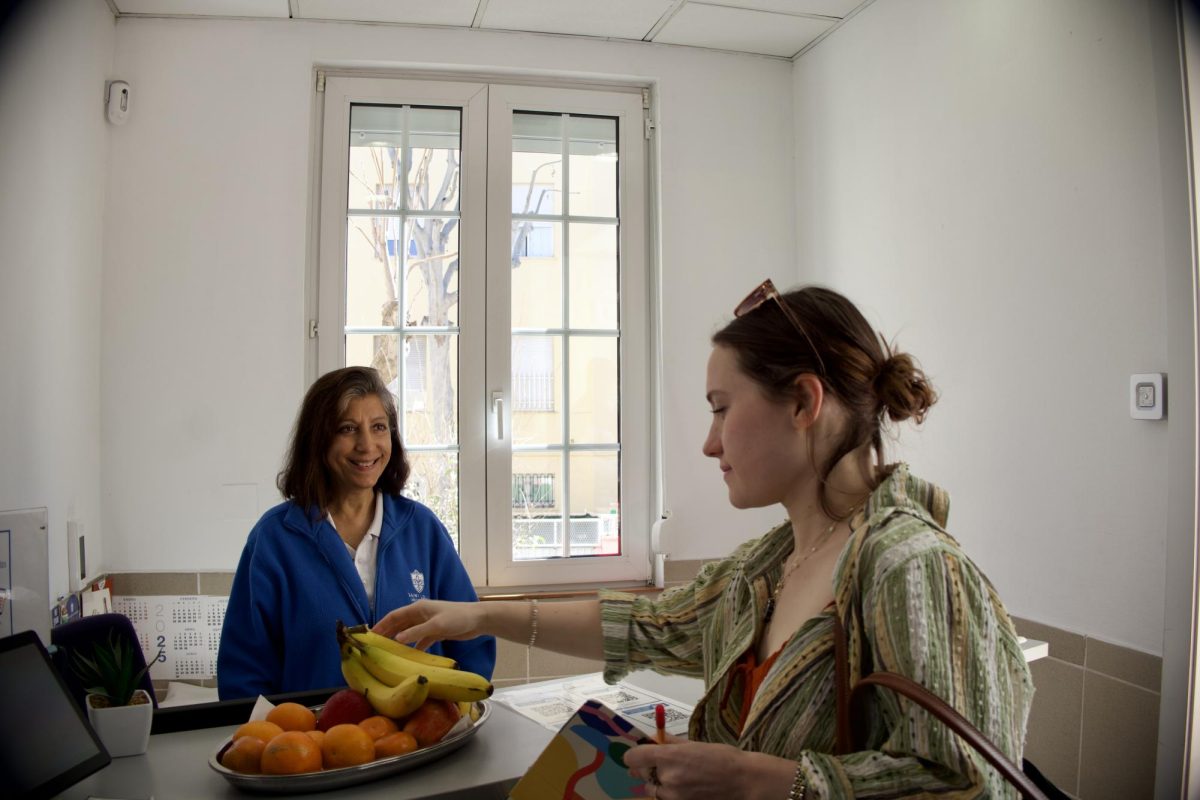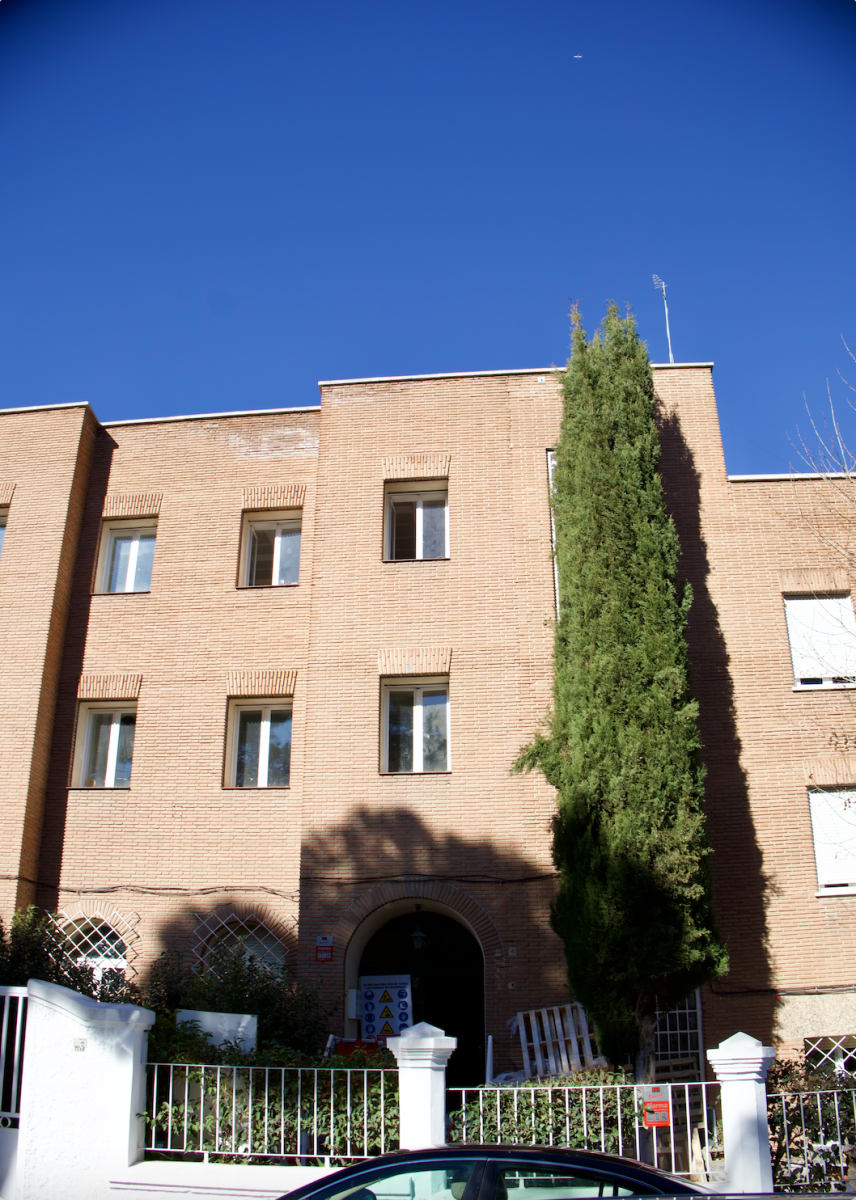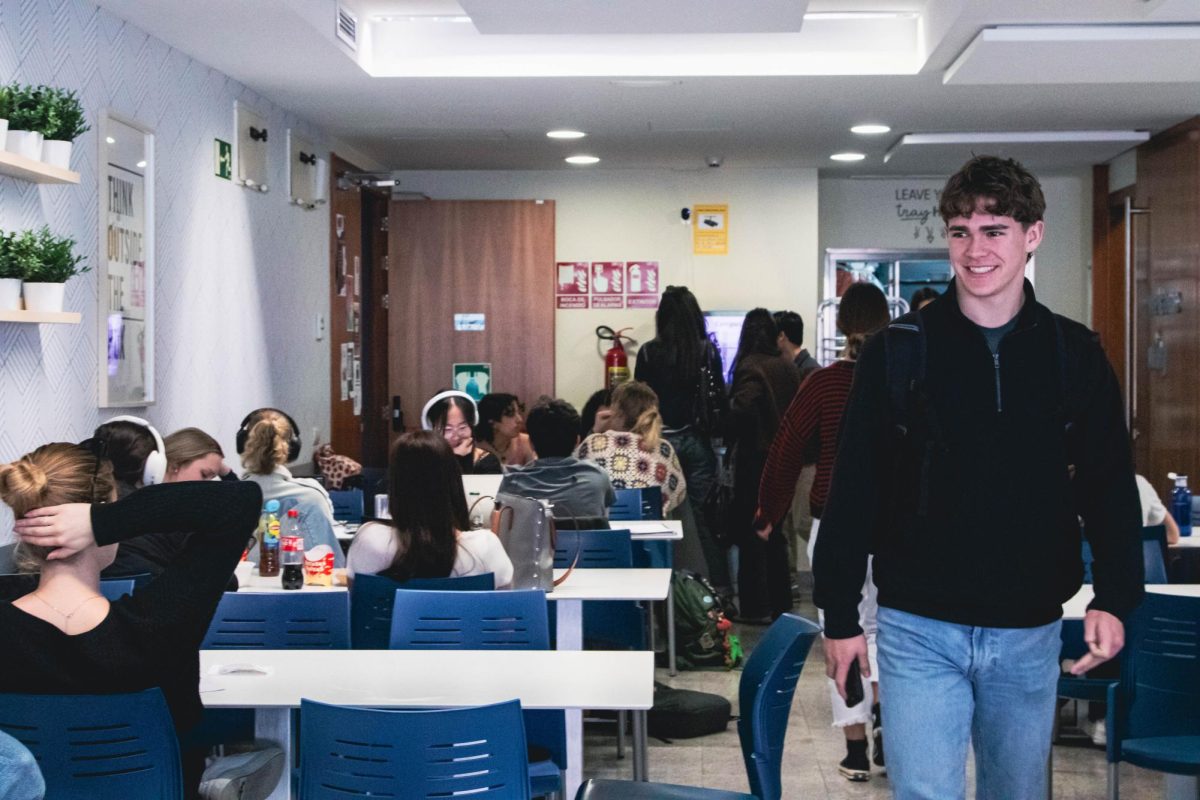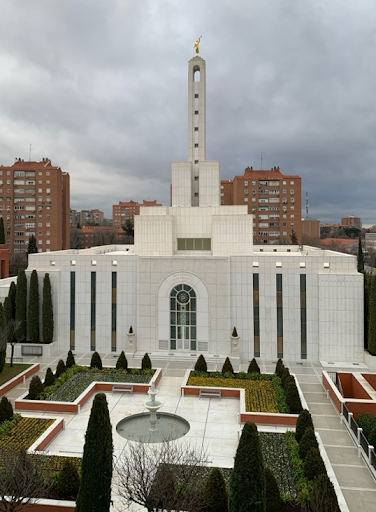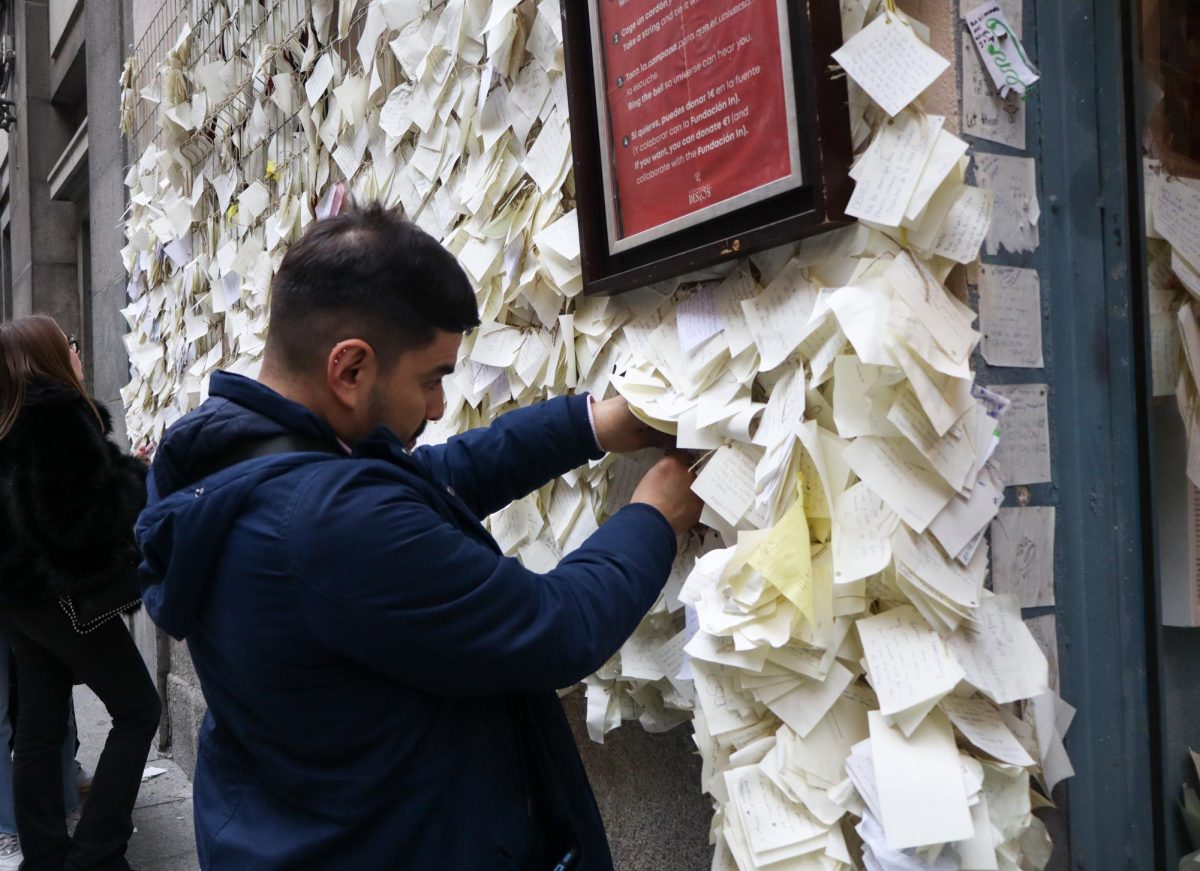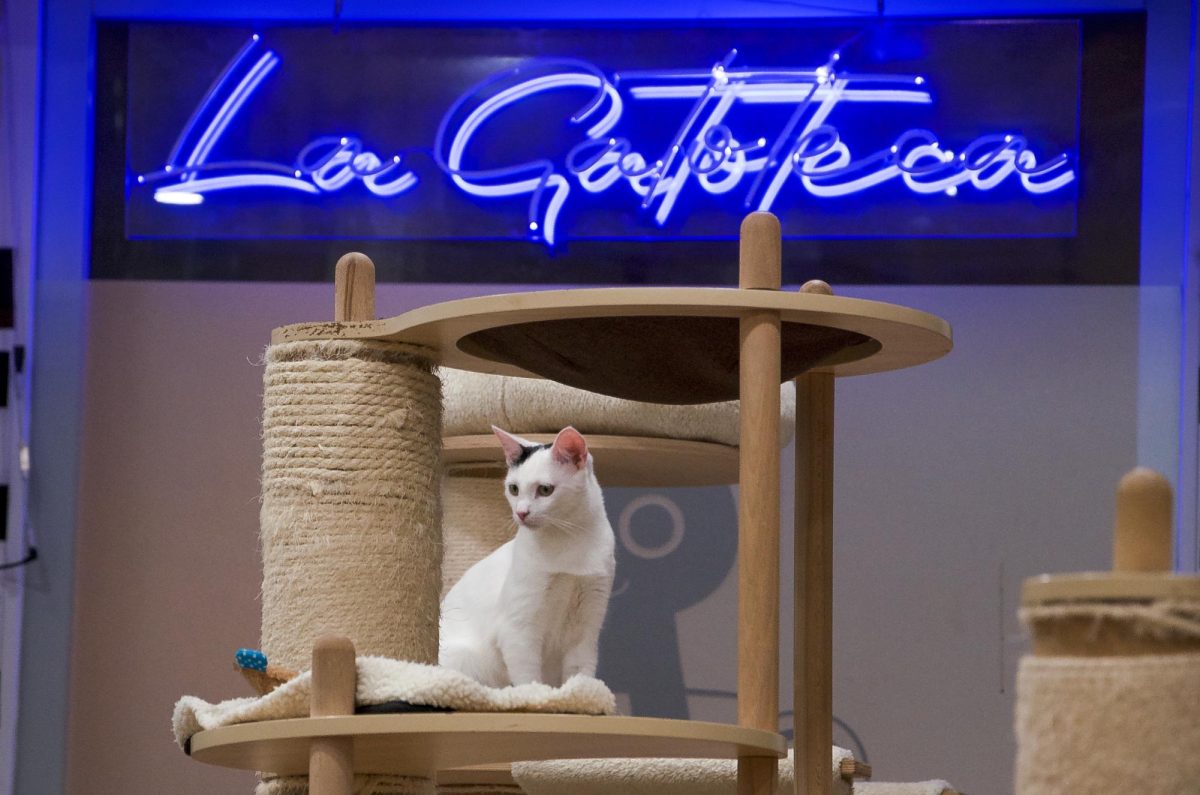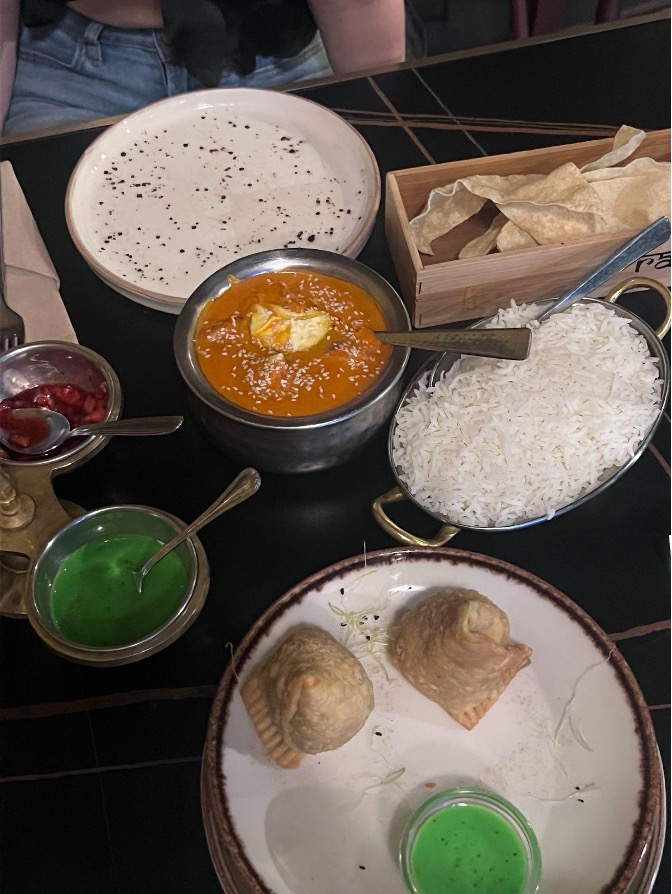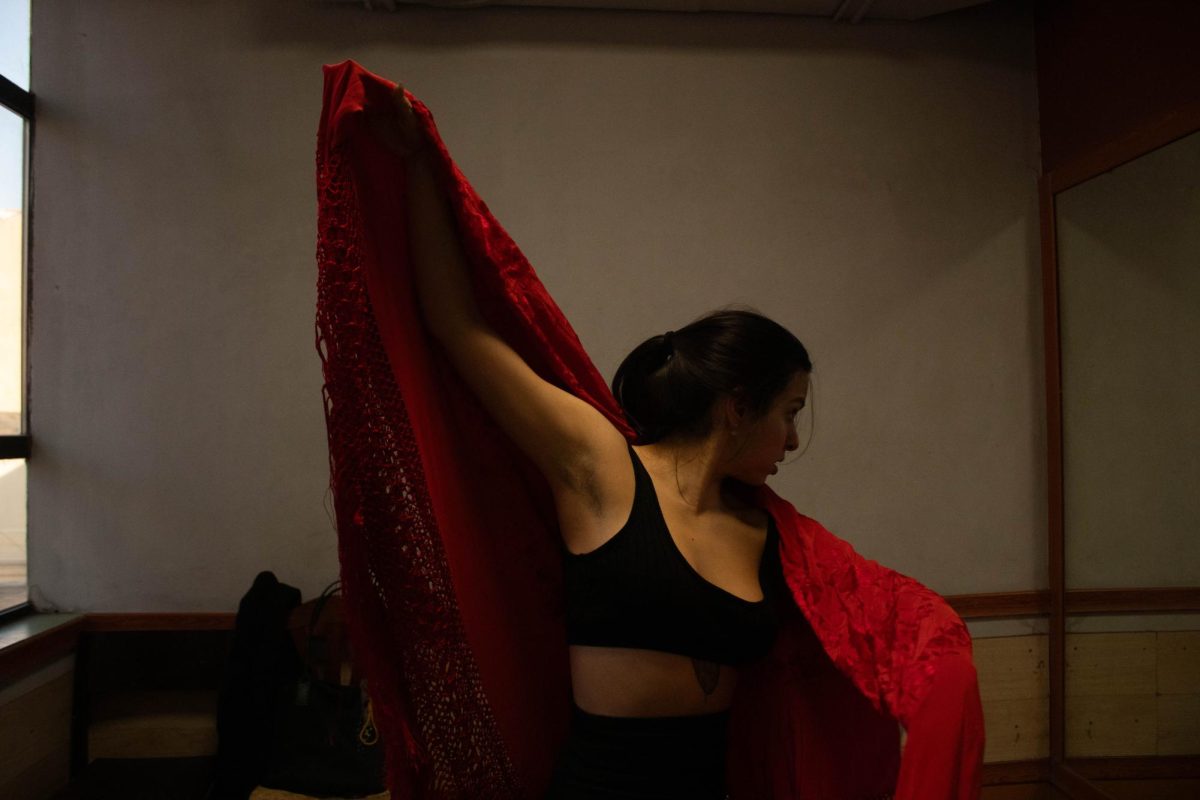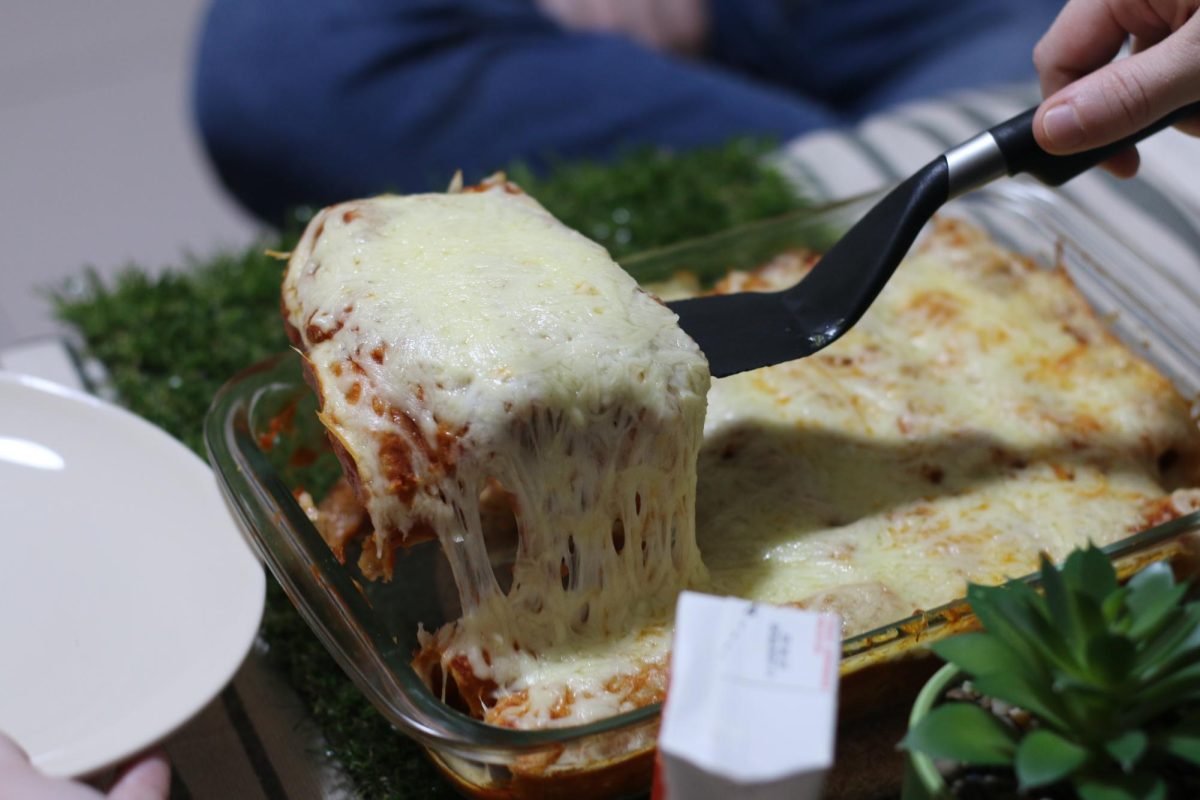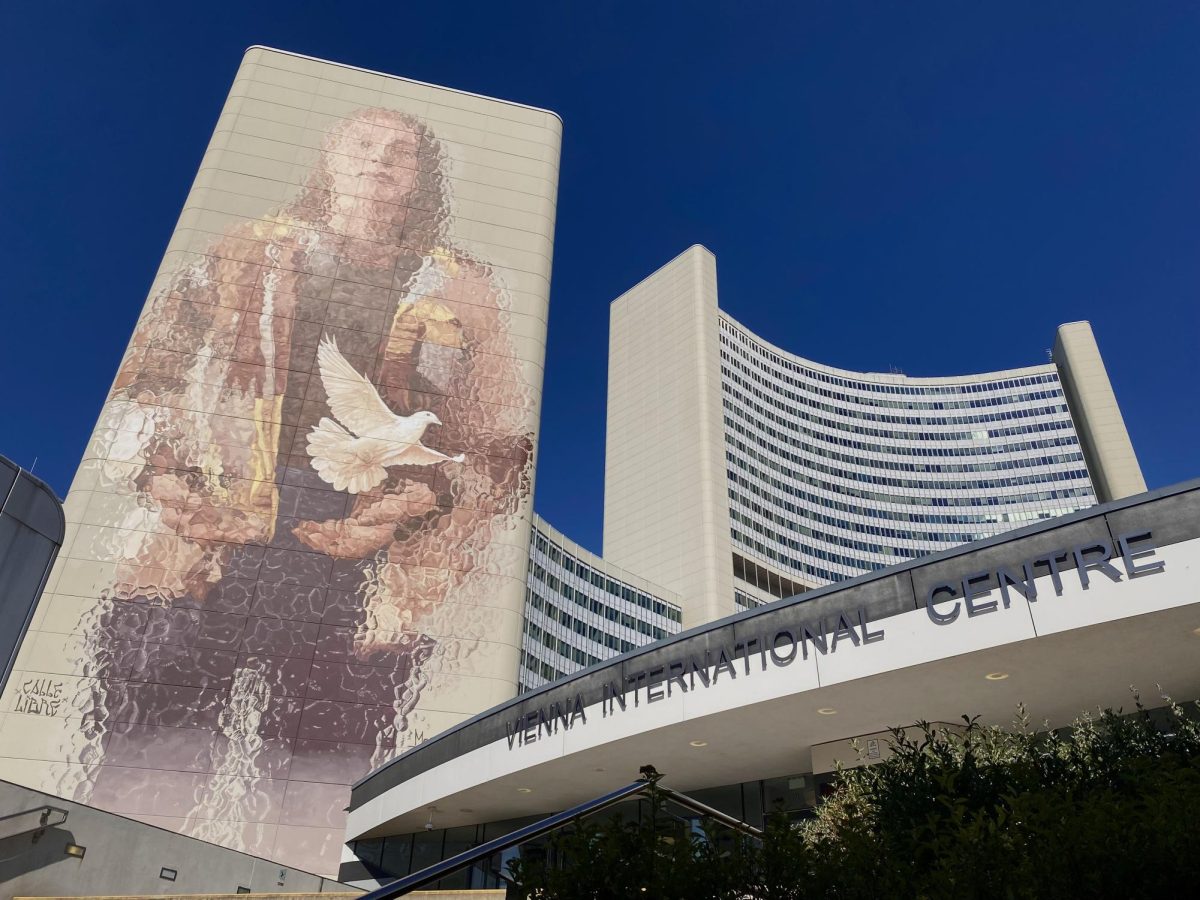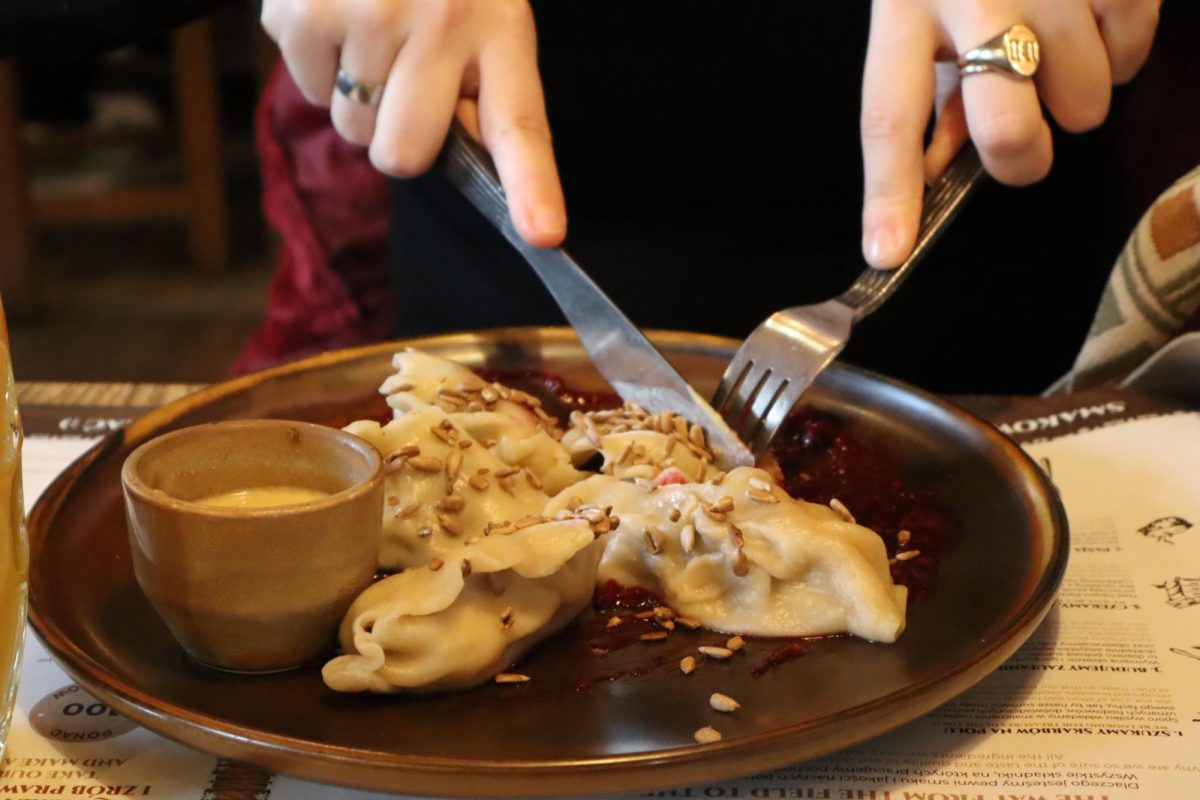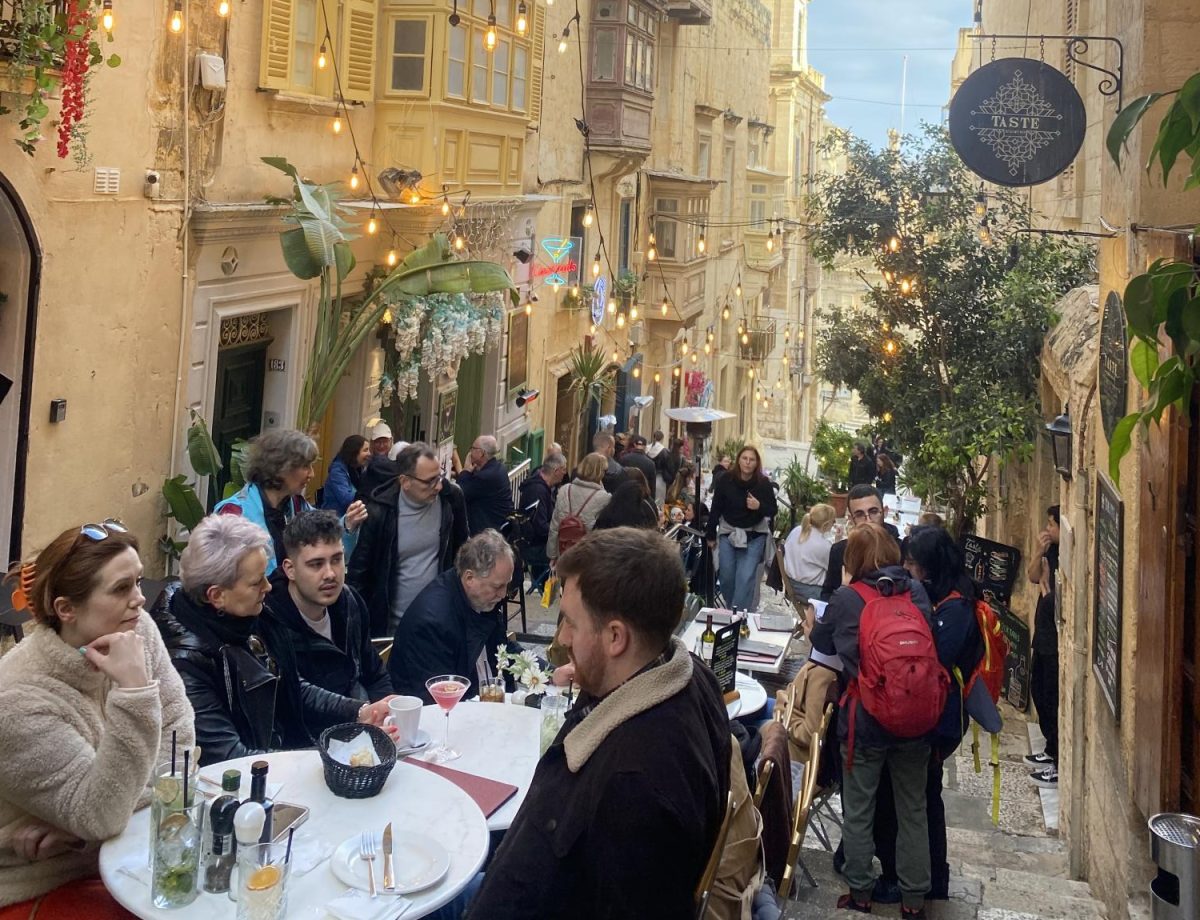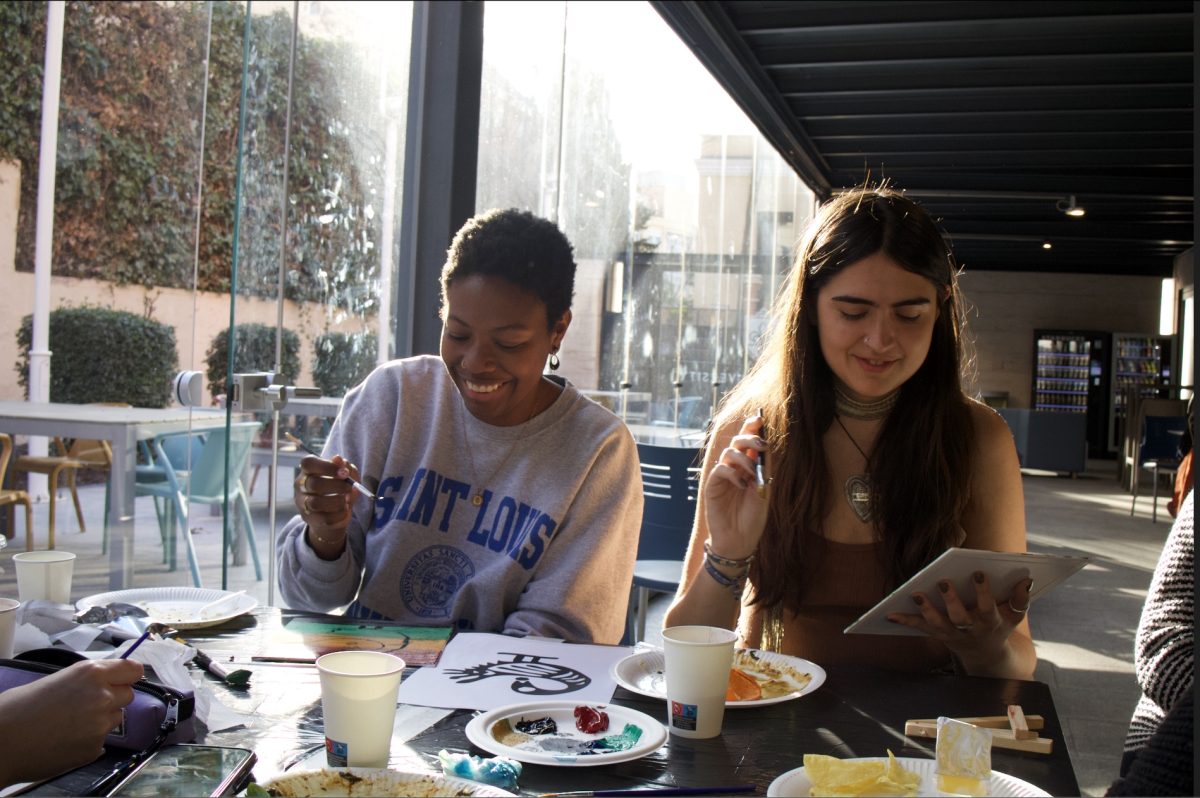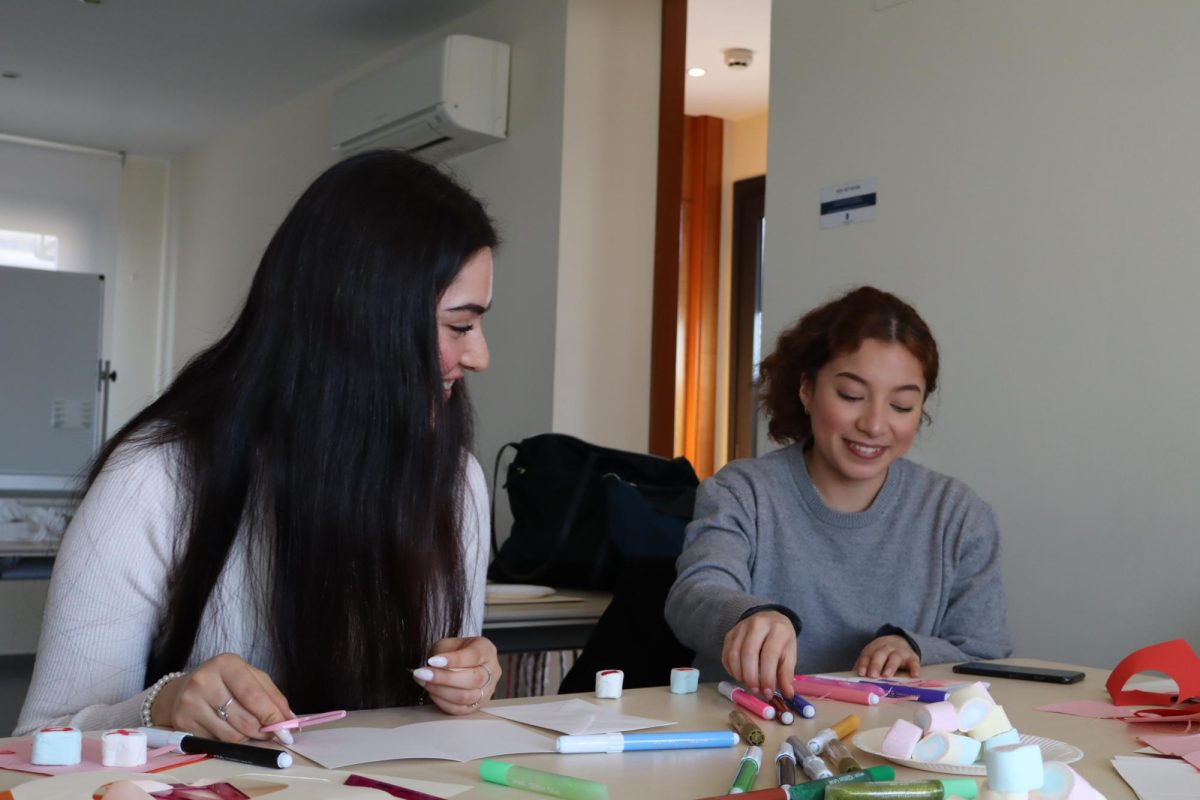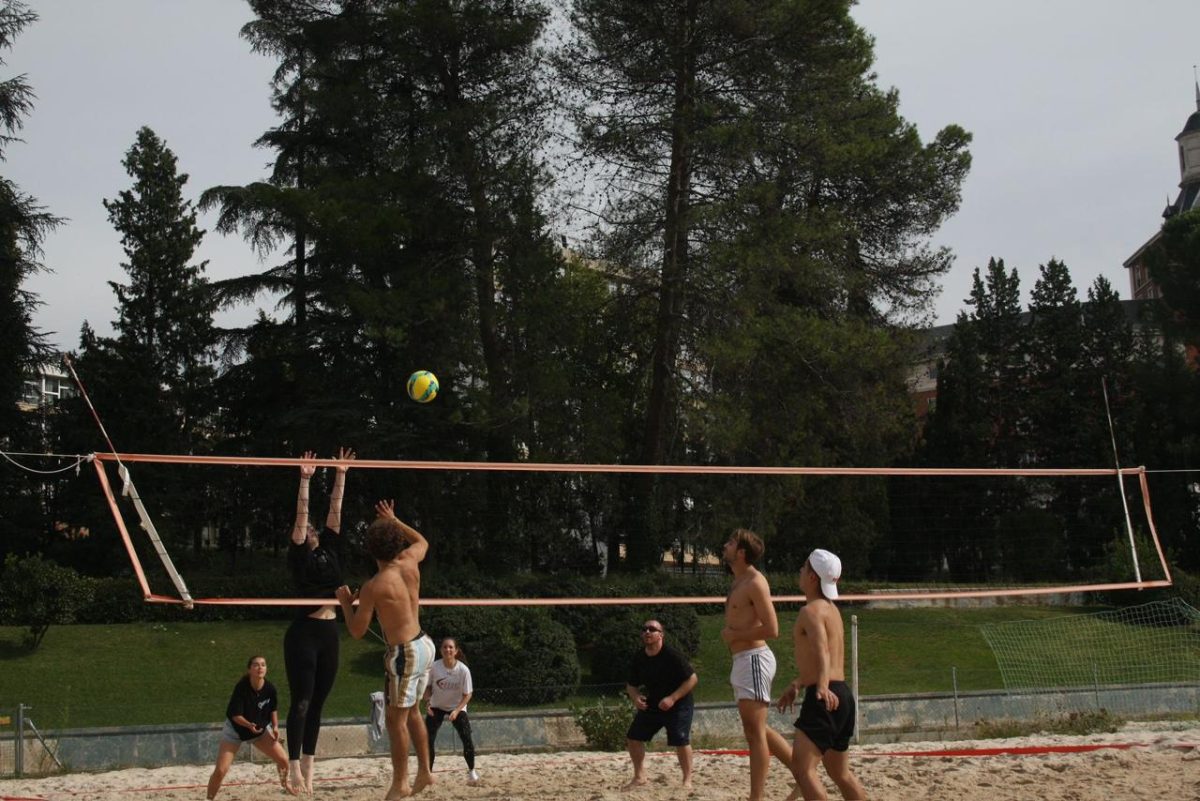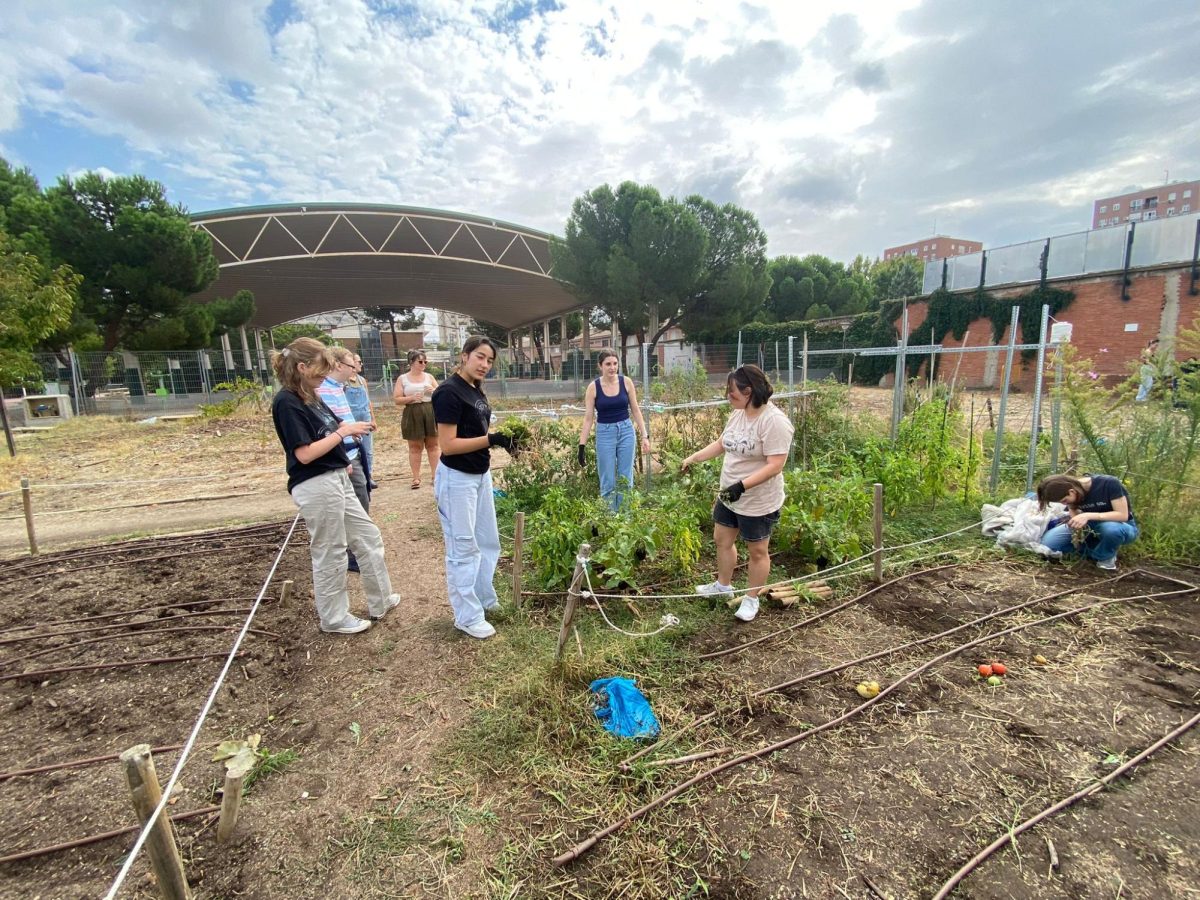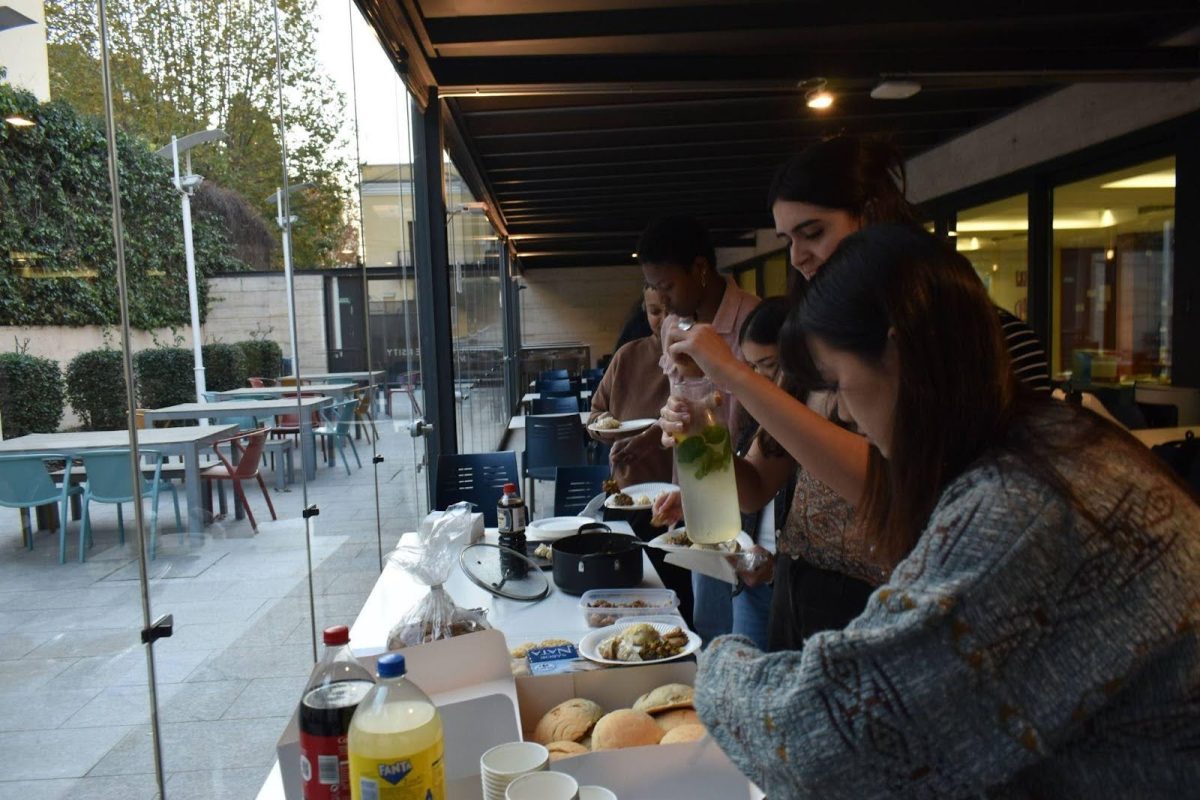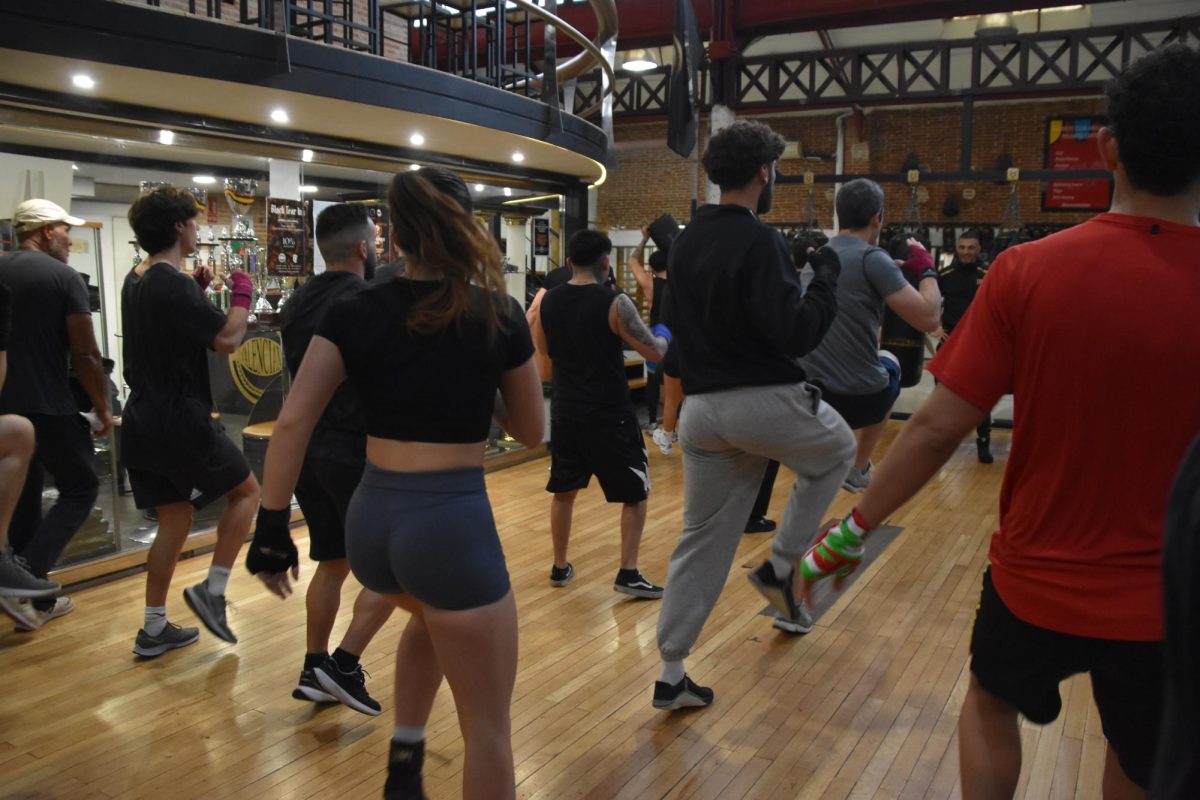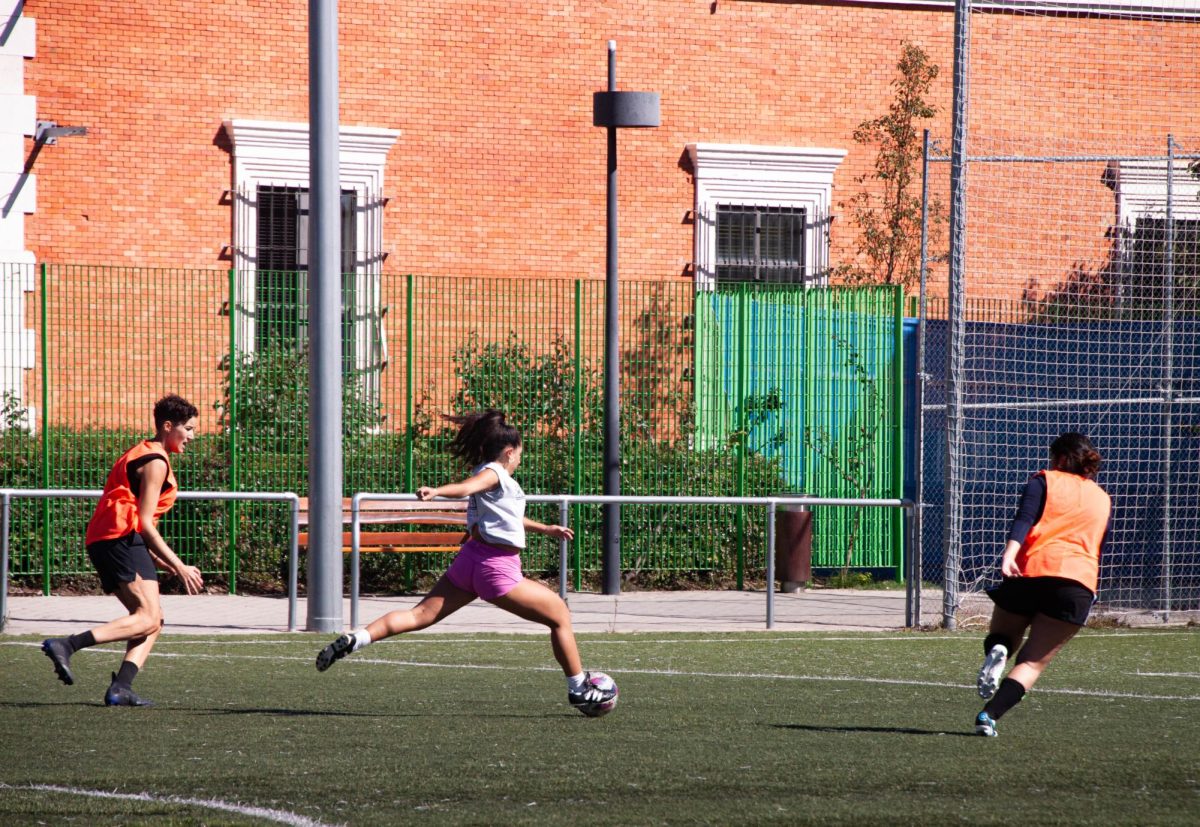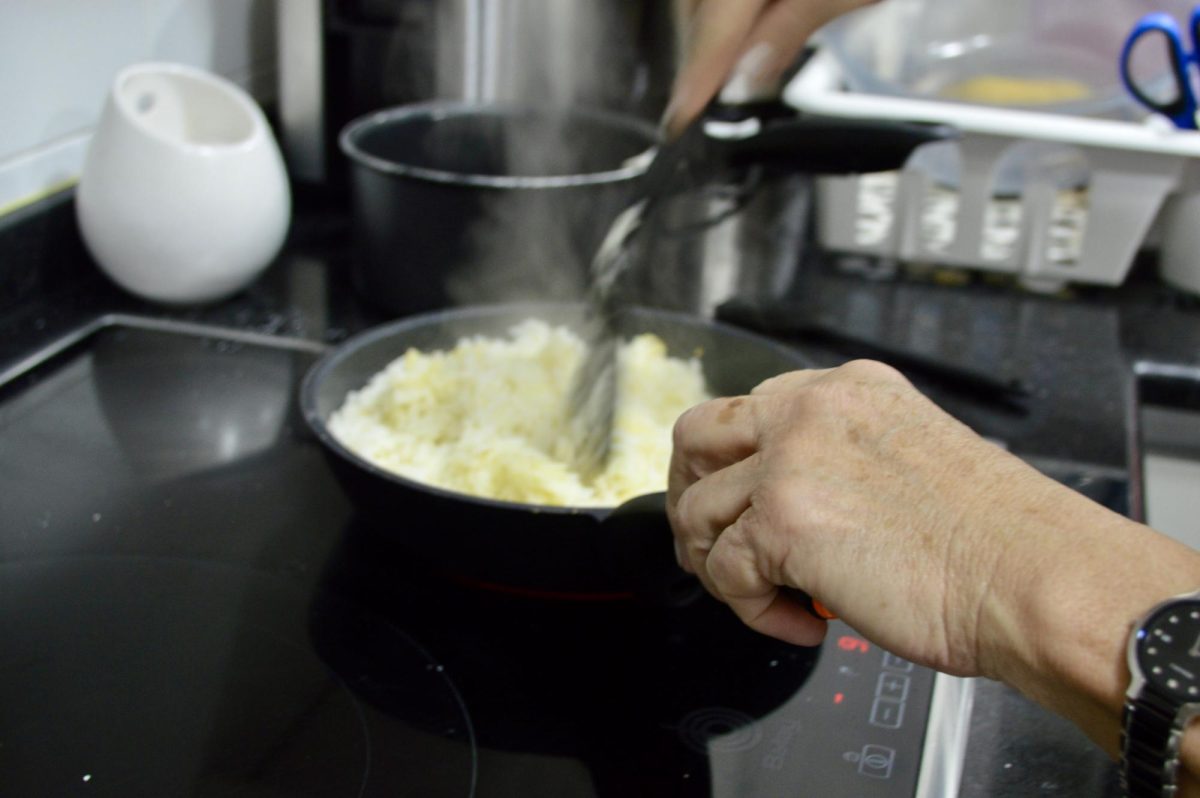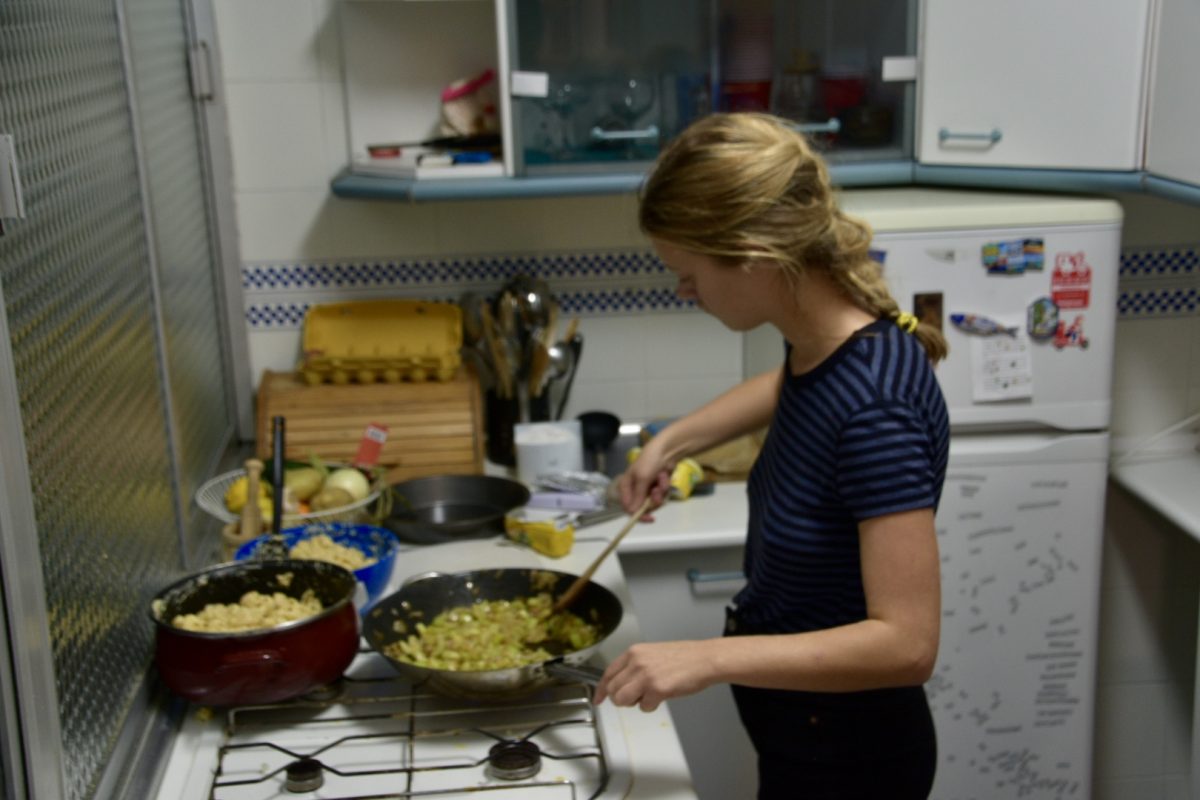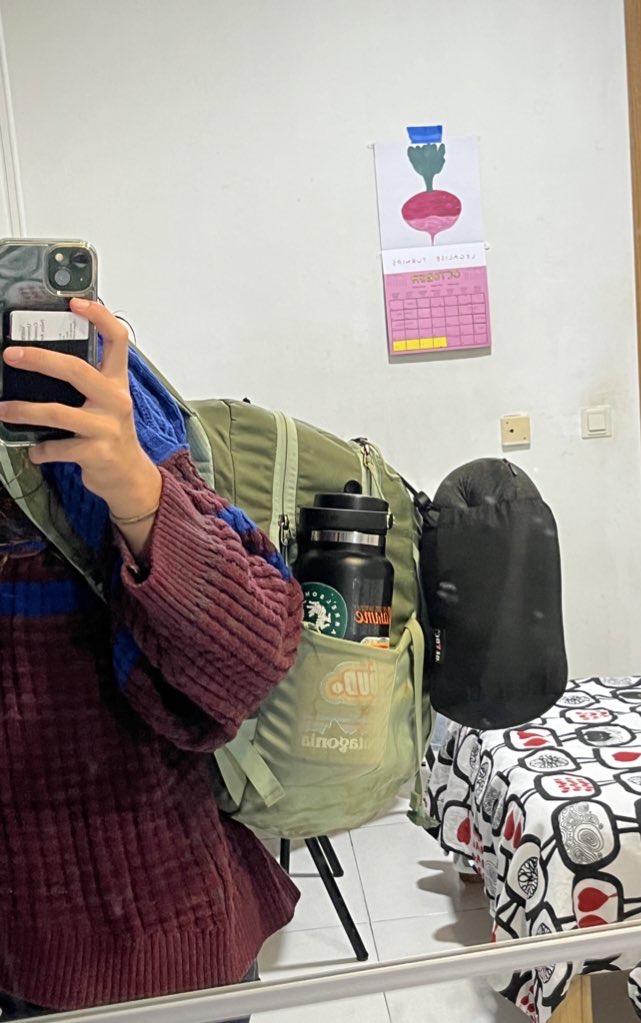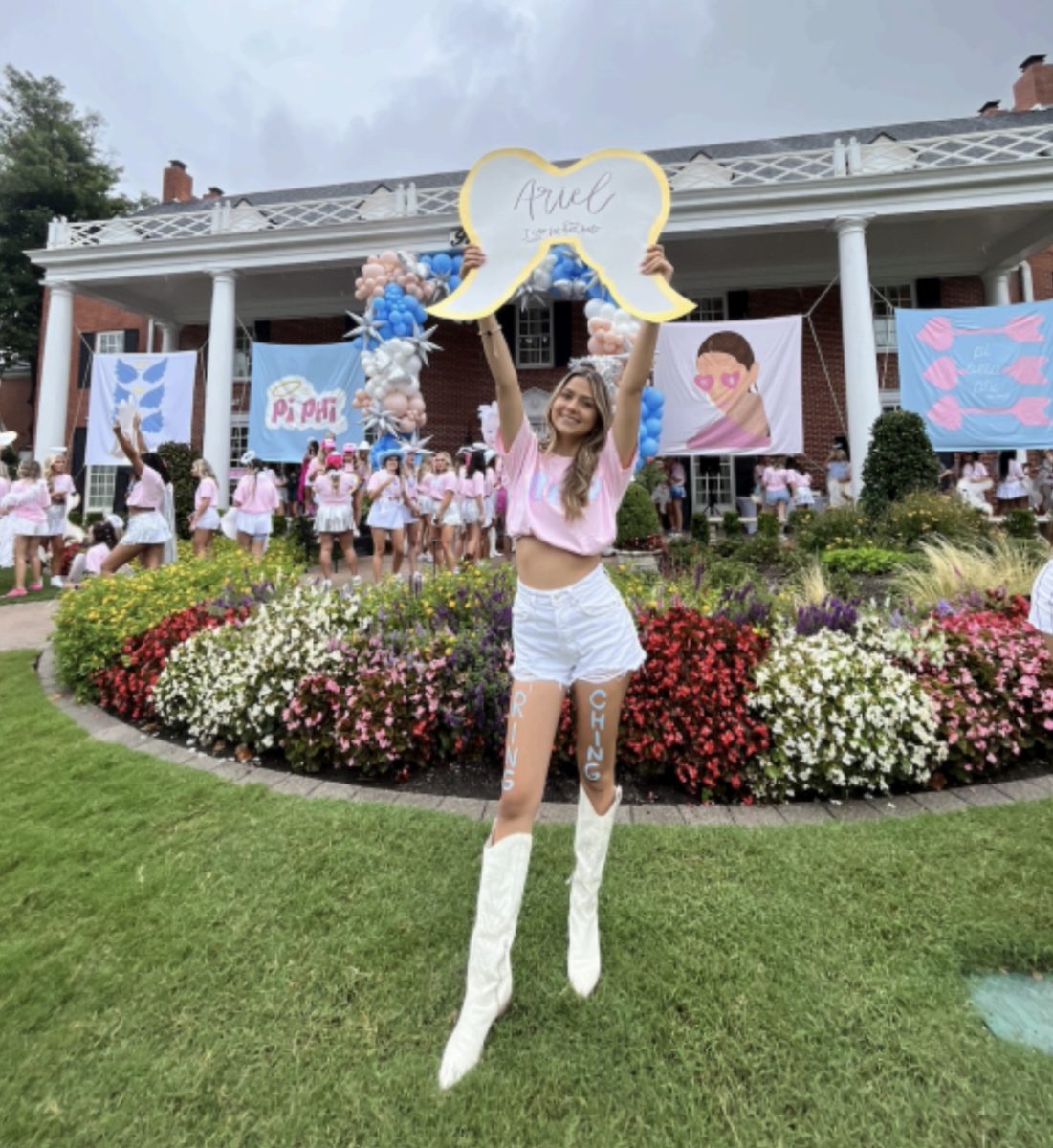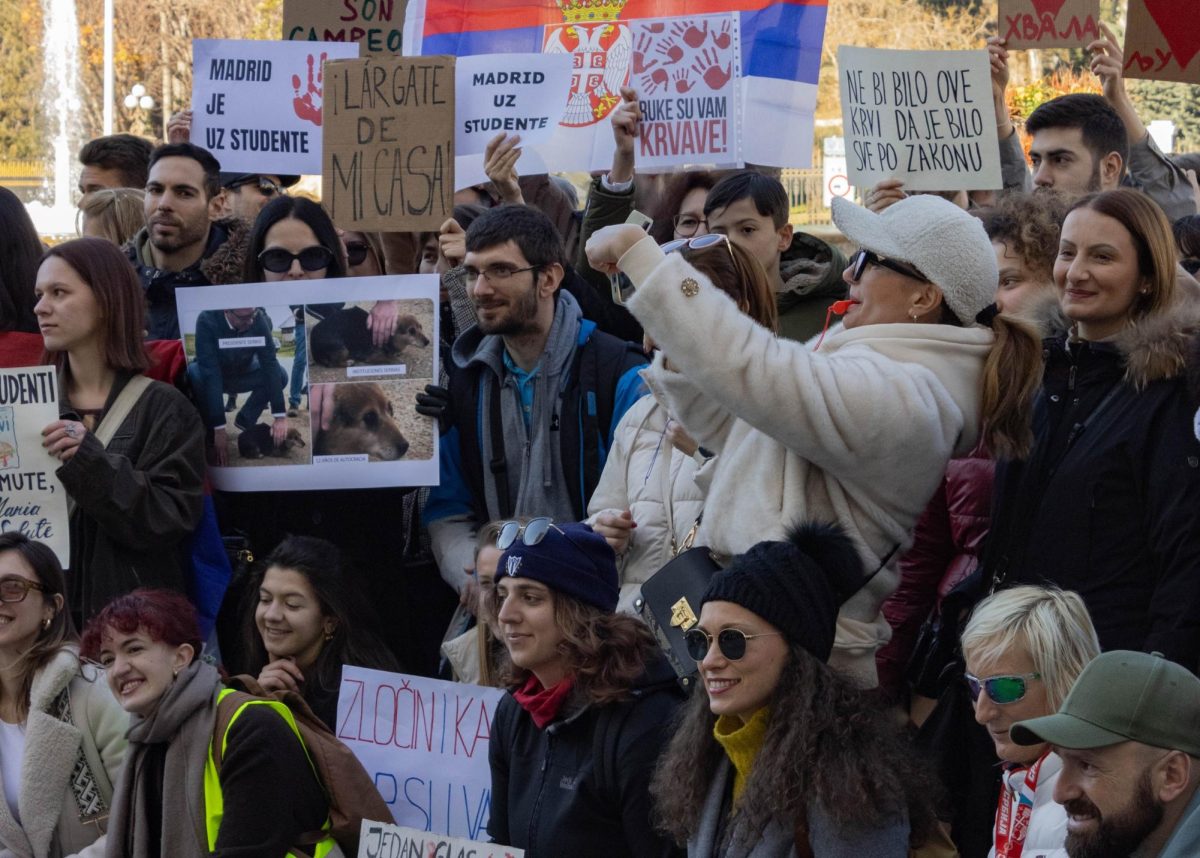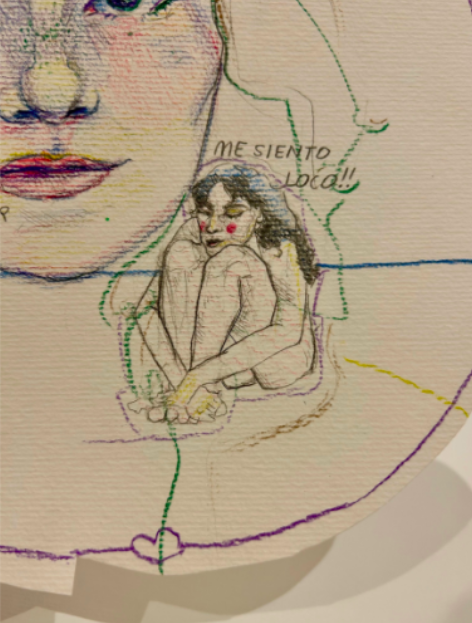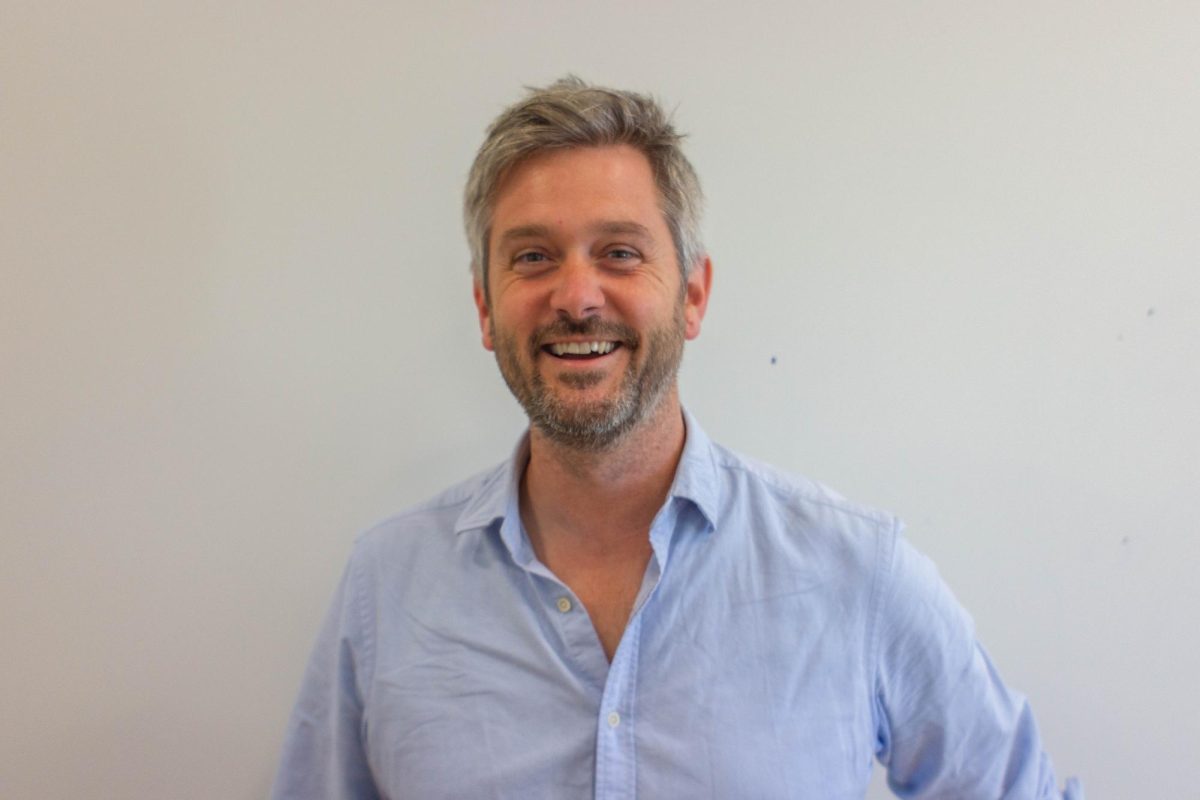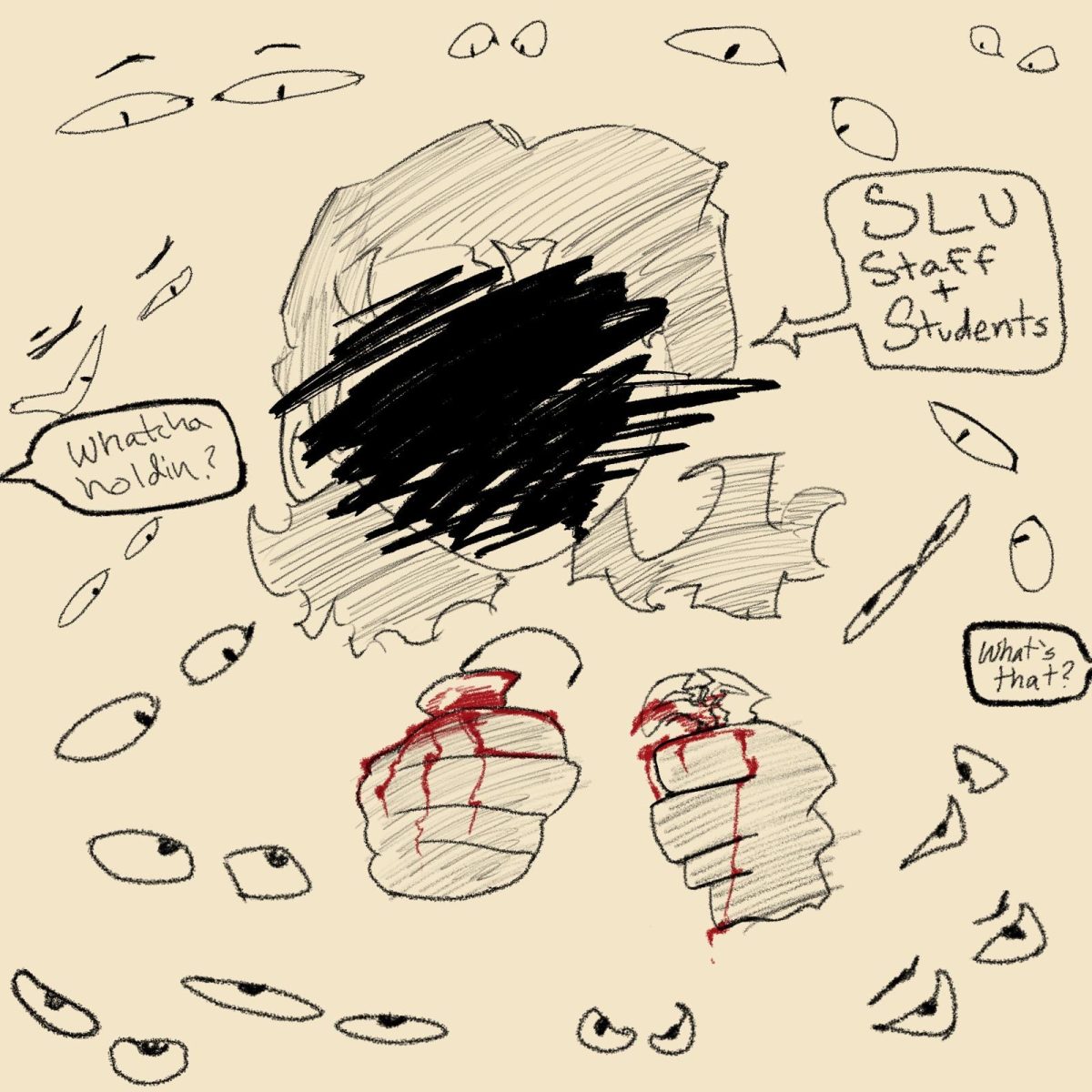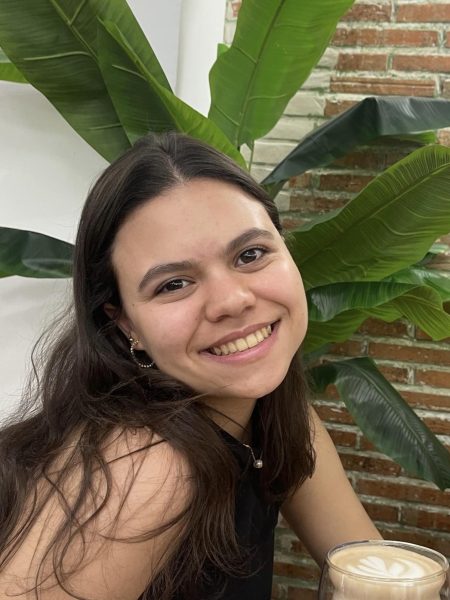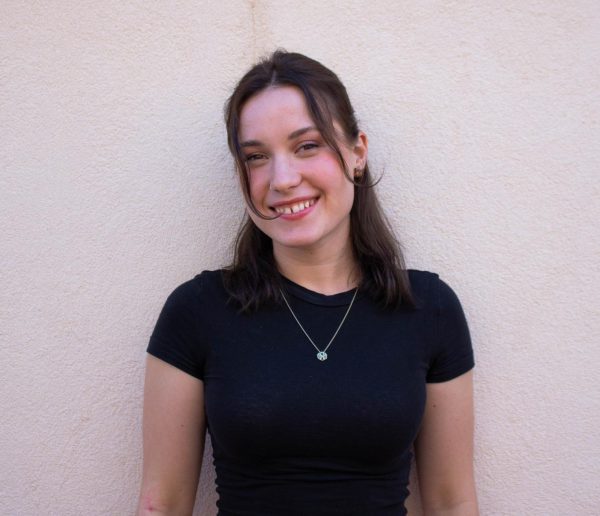Ryan Day is not entirely sure if he and Shakespeare would be friends. He furrows his eyebrows in thought, spinning an empty mug between his hands.
“I mean, you never know,” he shrugs, pausing to scratch his gray beard before deciding, “I do get the impression that he seemed to be a pretty decent person— he obviously had a great sense of humor.”
When the kettle right outside of his office bubbles to a stop, he stands up to get it, walking back in seconds later with his now steaming cup.
Without ever losing his train of thought, Day talks his way through reaching for a box of tea tucked somewhere between the books on his shelf, explaining that Shakespeare was many things at once. He was not only a talented writer but also a businessman who distributed and managed his own plays.
“I relate to the idea of not really wanting to be pegged down to one way of being,” he says, once he’s plunging the tea bag in and out of hot water. “You want to have an artistic, intellectual side, but also a practical thing that connects you to the world around you.”
It is, in fact, hard to peg down Day to one thing. Much like Shakespeare, he’s both a businessman and a writer. Although he’s mostly known in Saint Louis University’s Madrid campus for his role as the head of the English department until this year, he also happens to be the owner of several bars and restaurants around the Spanish capital.
His office is tucked in a corner of campus and filled to the brim with all kinds of different books. Day’s interests, like his parallel careers, are miscellaneous. His research and teaching revolve around ecocriticism, narrative scholarship and the Early Modern period, and his most popular courses include Introduction to Shakespeare, Memoir Writing, and an advanced literature course on food and witchcraft in Elizabethan plays.
As program director, most of his days are spent working on schedules, grading papers and participating in faculty meetings. When he’s not designing and developing classes, though, he can be found designing and developing menus.
In 2010, the year that he started teaching part-time in SLU Madrid, he also opened his first restaurant, the original installment of the well-known Tex-Mex chain Tierra Burrito. He was equipped with a PHD from Arizona State University to back up his teaching. As far as the restaurants go, his qualifications boiled down to a youth spent working kitchens and waiting tables in his hometown of Chicago, as well as “just a lot of research.”
Throughout the years, he has been involved in the development and ownership of eating spots all around the center of Madrid. These include The Toast Café, a recently closed rustic breakfast spot in Chamberí, The Toast Tap Room, a hip artisanal beer bar in Malasaña, and The Roll, a laid back American restaurant in Conde Duque that Day struggles to remember the name of when listing off places.
“What was that one called?” he asks, then lets out a puff of air. “I should know.”
At the height of it, the rapid and simultaneous growth of his restaurant ventures and academic career were almost too much to juggle. In 2019, right around the time that Day was hired in SLU Madrid as a full-time faculty member, he and his business partner owned and managed six restaurants around the city.
“That was a stressful year,” he laughs.
The year that followed was stressful too, in a more universal way. When the world shut down because of COVID, half of Day’s restaurants did as well.
Business has stabilized since, and three places remain open, but Day is not nearly as involved as he was before. In the beginning, his input was very hands-on. When he first opened Tierra Burrito Bar– which has gone on to become a huge chain with over 20 locations around Madrid after he sold it years ago– he developed the menu himself and would frequently cook in the kitchen. The Toast was a similar story; he was the café’s cook for its first two years.
Since the pandemic, he has taken an intentional step back, prioritizing his roles on campus. When he does go to his restaurants it’s just to “pass by.” From time to time, he’ll go in and cook for a beer pairing.
“I had to really decide where I wanted to go, and ultimately prioritized writing,” he says. “It’s nice to have both still alive though.”
His current focus is SLU Madrid’s creative writing program. A creative writing minor was introduced to the Madrid campus last fall semester, and is rapidly gaining popularity amongst students. A creative writing MFA is in the works. Day also takes great pride in Mad Convivium, SLU Madrid’s arts magazine, for which he is a faculty supervisor.
His involvement on campus has always been memorable. Anne McCabe was already a member of the English faculty by the time Day completed SLU Madrid’s now discontinued English Master’s program in 2006. She would describe him as “seamless.”
“He’s the same person that he was back then,” she says. “He’s good at taking things with stride, and always seems so calm.”
McCabe remembers visiting an ESL course Day taught when he first got hired. All the students were gathered around him as he spoke, “entranced.”
“Ryan really seems to enjoy what he does,” she says. “Everything he does.”
In the creative writing class he teaches, he talks as much as he listens, which is a lot. His students have arranged their desks in the shape of a circle and frequently ask questions without raising their hands. In the white board behind him, Day has listed down “Characters, Happenings, Places, Things” in shaky, slightly tangled block letters. When a student asks how long a short story should be, he launches into a three minute monologue about finding balance between detail and restraint that he concludes with: “All that to say, I guess, do whatever feels right.”
The room is silent for just over a second before he speaks again.
“But also, you know, do enough.”
The student seems satisfied with his answer– she nods and scribbles something down in her notebook.
Day’s affinity for narrative and storytelling is not restricted to his work at SLU Madrid. His fourth book, Outside Athens, came out in the summer. He even struggles to define that as one thing or another.
“What is it about?” he asks the ceiling. After a minute of contemplation, he shrugs.
Through many diverse projects, however practical, creative, or opposite from the rest they may be, the one thing that strings his life together is language. He’s keenly aware of it, and how its workings change within different environments. He thinks being simultaneously submerged in the prestigious academic world and the mundane restaurant scene for so long has allowed him to find equilibrium.
“In academia we theorize everything, and we tend to forget how real people– I don’t want to call them real people– but, for lack of a better term, real people communicate,” he says.
He’s still stirring the tea bag around his mug, although the water is probably cold by now.
“It’s good to have that balance between the academic world and… I really don’t want to call it the real world, but… the kitchen, I guess.”
